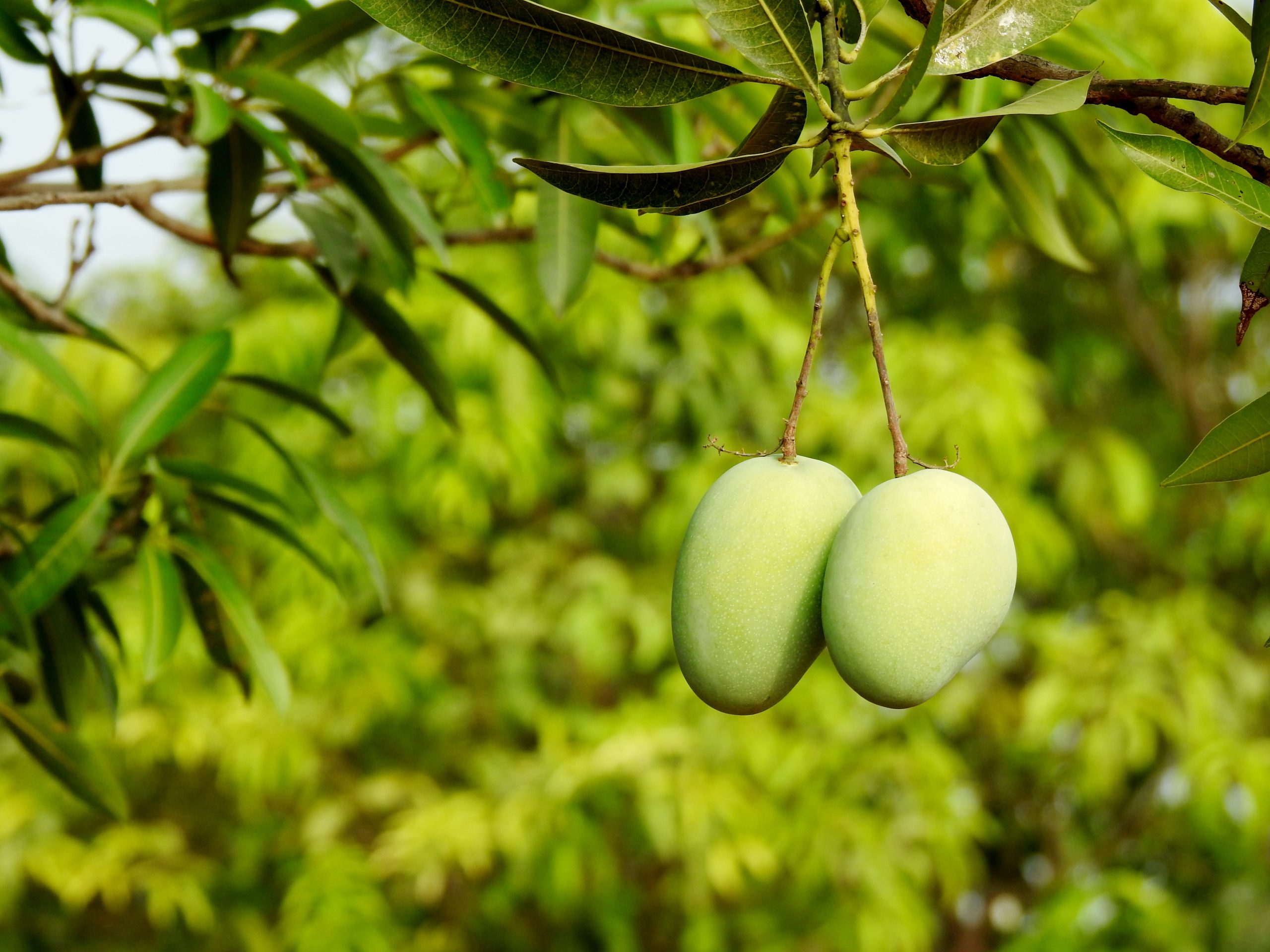Mangoes are a type of fruit that are native to South Asia but are now cultivated in many parts of the world, including tropical and subtropical regions. They are known for their sweet and juicy flesh, which can range in color from yellow to orange to red, depending on the variety. Mangoes are a good source of vitamins A and C, as well as dietary fiber and antioxidants. They can be eaten fresh, dried, or cooked, and are used in many different types of cuisine, such as smoothies, salads, curries, and desserts. Mangoes are also used in traditional medicine for their anti-inflammatory properties and potential health benefits.
The tastiest mangoes are often subjective and depend on personal preferences, but certain varieties are widely renowned for their exceptional flavor and texture. Alphonso mangoes, originating from India, are considered one of the most delicious mango varieties, prized for their rich, sweet taste and smooth, buttery texture. Their vibrant orange flesh boasts complex flavor notes of tropical fruit, with hints of honey and citrus. Ataulfo mangoes, also known as Honey or Champagne mangoes, are another top contender for their exceptionally sweet, tangy flavor and creamy texture, with minimal fiber. These small, yellow mangoes are often described as melting in the mouth and are perfect for eating fresh or incorporating into desserts and salads. Whether it’s the nuanced sweetness of Alphonso or the creamy richness of Ataulfo, these mango varieties consistently deliver an indulgent and satisfying taste experience, making them the go-to choices for mango lovers seeking the ultimate flavor sensation.
Mangoes, often hailed as the “king of fruits,” come in a vast array of varieties, each with its unique flavor, texture, and appearance. Here are some popular varieties of mangoes:
- Alphonso: Known for its rich, sweet flavor and smooth, buttery texture, Alphonso mangoes are considered one of the best-tasting varieties. They are often used in desserts, such as mango lassi or mango sorbet.
- Ataulfo (Honey or Champagne): These small, yellow mangoes have a creamy texture and sweet, tangy flavor. They are less fibrous than other varieties, making them ideal for eating fresh or adding to salads.
- Keitt: Keitt mangoes are large, green mangoes with a sweet, mild flavor and minimal fiber. They are popular for slicing and eating fresh or using in salsas and chutneys.
- Tommy Atkins: One of the most widely available mango varieties, Tommy Atkins mangoes have a mild, sweet flavor with hints of tropical fruit. They are often used in juices, smoothies, and fruit salads.
- Kent: Kent mangoes are large, oval-shaped mangoes with a sweet, tropical flavor and smooth, string-free flesh. They are excellent for eating fresh or using in desserts and preserves.
- Haden: Haden mangoes are medium-sized mangoes with a sweet, tangy flavor and firm, fiberless flesh. They are often used in cooking and canning due to their vibrant color and rich flavor.
- Nam Doc Mai: Originating from Thailand, Nam Doc Mai mangoes are small, yellow mangoes with a sweet, floral flavor and smooth, non-fibrous flesh. They are prized for their juiciness and are often eaten fresh or used in desserts.
- Manila (Carabao): Commonly grown in the Philippines, Manila mangoes are small, kidney-shaped mangoes with a sweet, creamy flavor and smooth, fiberless flesh. They are often eaten fresh or used in desserts and smoothies.
These are just a few examples of the numerous mango varieties available worldwide, each offering its unique taste and culinary uses.

Mangoes are a nutritious and delicious fruit that offer many potential health benefits. Here are some of the benefits of consuming mangoes:
- Rich in Nutrients: Mangoes are a rich source of vitamins A and C, potassium, and dietary fiber.
- Boost Immunity: Mangoes contain high levels of vitamin C, which is essential for a healthy immune system. It also contains carotenoids, which have antioxidant properties and may help to protect against oxidative stress.
- Promote Digestive Health: Mangoes are high in dietary fiber, which can help to promote regular bowel movements and prevent constipation.
- May Lower Cholesterol: Mangoes contain compounds that may help to lower LDL (bad) cholesterol levels, which can help to reduce the risk of heart disease.
- May Help Regulate Blood Sugar: Mangoes have a low glycemic index, which means they are less likely to cause a spike in blood sugar levels. Additionally, the fiber in mangoes may help to slow down the absorption of sugar in the blood.
- Support Eye Health: Mangoes are a rich source of vitamin A, which is important for maintaining healthy eyes and preventing age-related macular degeneration.
- May Help with Skin Health: Mangoes contain vitamin C and beta-carotene, which are important nutrients for skin health. They also have anti-inflammatory properties that may help to reduce inflammation and promote healthy skin.
It’s important to note that while mangoes offer many potential health benefits, they should be consumed in moderation as they are also high in natural sugars.
Does consuming mangoes make you fat?
Consuming mangoes by themselves does not necessarily make you fat. Mangoes are a nutritious fruit that offer several health benefits, including fiber, vitamins, and antioxidants. However, like any food, consuming excessive amounts of mangoes can contribute to weight gain due to their calorie and sugar content. It’s important to consume mangoes in moderation as part of a balanced diet to avoid consuming too many calories. Additionally, maintaining a healthy weight involves balancing your calorie intake with physical activity, so regular exercise is important for overall health and weight management.
Mango & Diabetics
Mangoes can be a part of a diabetic’s diet in moderation, but they should be consumed with caution due to their natural sugar content. Mangoes are a good source of dietary fiber, vitamins, and antioxidants, but they also contain natural sugars, mainly fructose and glucose, which can raise blood sugar levels. Therefore, diabetics should monitor their portion sizes and consume mangoes in moderation as part of a balanced diet. It’s important to consult with a registered dietitian or a healthcare professional to determine the appropriate portion size and frequency of mango consumption that is safe for your individual needs. Additionally, consuming mangoes with a source of protein and/or fat can help slow down the absorption of sugar and prevent blood sugar spikes

